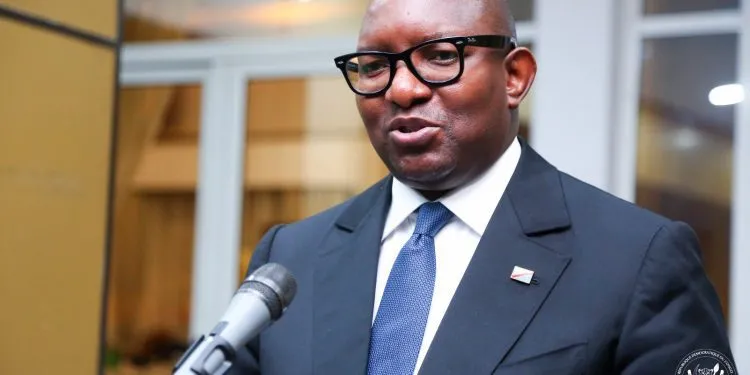The Democratic Republic of Congo (DRC) Prime Minister, Jean-Michel Sama Lukonde, has tendered his resignation to President Felix Tshisekedi, leading to the dissolution of his government, as announced by the presidency on Tuesday.
Lukonde’s decision comes just eight days following the validation of his mandate as a national deputy.
His intention is to transition to a role in parliament after being elected in the country’s December polls, representing the Kasenga district. This shift underscores a critical legal requirement in the DRC, where serving ministers cannot simultaneously hold seats in parliament.
This necessitates individuals to make a decisive choice between legislative duties and governmental responsibilities.
The presidency, in a follow-up statement, has urged Lukonde’s government to continue its functions until the formation of a new administration, signifying a commitment to maintain stability during this transition period.
Appointed as prime minister in February 2021 at the age of 43, Lukonde assumed office following the dissolution of the alliance between President Tshisekedi’s coalition and that of former president, Joseph Kabila.
His tenure witnessed efforts to navigate the complexities of coalition politics and governance in a nation grappling with various socio-political challenges.
After President Tshisekedi’s re-election in December, a key task was to establish a majority coalition within the National Assembly to facilitate the formation of the next government.
Provisional results, subject to confirmation by the Constitutional Court, indicate a dominant victory for parties aligned with President Tshisekedi, securing nearly 94 percent of the assembly seats.
The resignation of Prime Minister Lukonde, against the backdrop of ongoing political realignments and power dynamics, has generated speculation about the future trajectory of governance in the DRC.
As the nation enters a phase of transition, attention now turns to the process of selecting a new prime minister and the formation of a revamped government tasked with addressing the myriad challenges facing the nation.
The developments in the DRC reverberate not only within the nation but also across the broader African continent, highlighting the intricacies of democratic governance and political stability in a region marked by historical legacies and contemporary complexities.
As stakeholders navigate this period of transition, the eyes of the world remain fixed on the Democratic Republic of Congo, a nation at the crossroads of opportunity and challenge.



